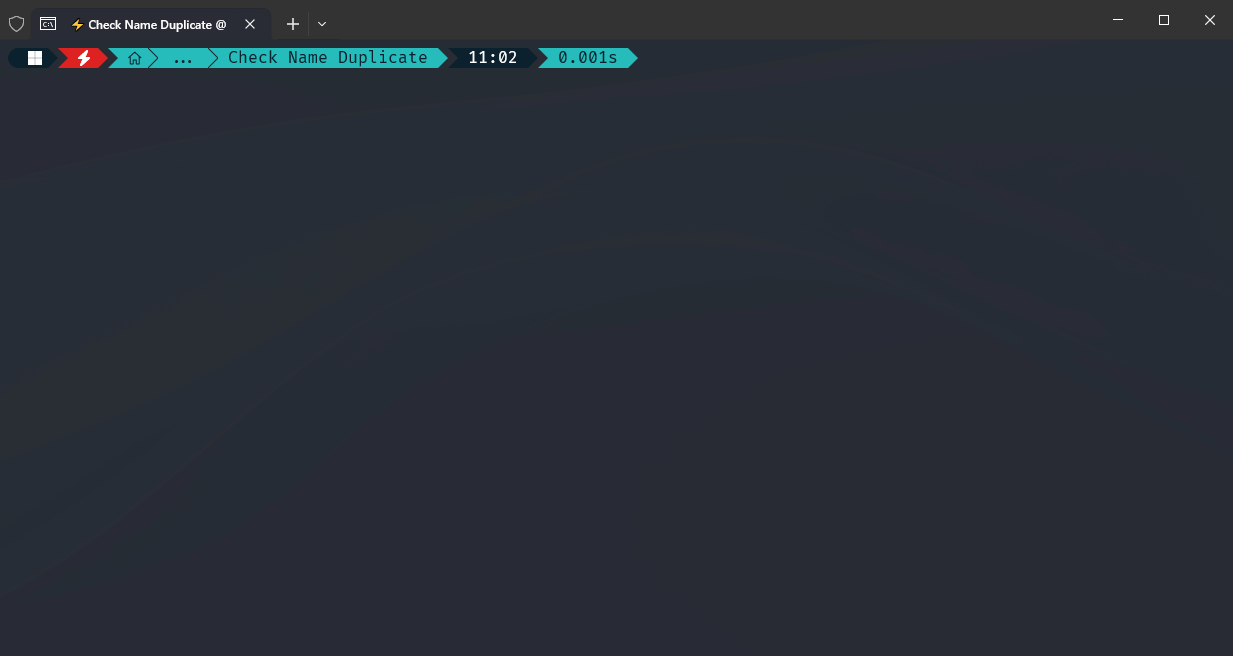| This script is a basic example of the Python programming language It was created for personal use But feel free to use or study it |
Note
This program is not designed for everyone It might seem a bit confusing I will update the program to make it more user-friendly and visually appealing next time
- Delete Existing Files: The delete_files function deletes any files specified in the list if they exist, otherwise it informs that they do not exist.
- Create New Files: The create_file function creates a new file if it doesn’t already exist. It prompts the user to enter data line by line until they type 'done', at which point it saves the data to the file.
- Get File Data: The get_file_data function reads the contents of a file and returns it as a list of lines.
- Check Missing Data: The check_files function compares the contents of two files (a "ram" file and a "sheets" file). It identifies lines missing in each file and writes this information to an output file if there are any discrepancies.
- Main Function: The main function orchestrates the process by:
- Deleting any existing versions of the "Main.txt", "Check.txt", and "MissingData.txt" files.
- Creating fresh "Main.txt" and "Check.txt" files with user input.
- Checking for missing data between the two files and reporting any discrepancies to "MissingData.txt".
- Prompting the user to press Enter to continue at the end.
Tip
If a message appears stating 'Missing data found. Please check MissingData.txt,' it indicates that there is a data inconsistency You can verify the specific discrepancies by examining the MissingData.txt file
Tip
However, if a message 'No missing data', it indicates that all data is identical
import os # Import the os module to interact with the operating system
def delete_files(file_paths):
# This function deletes files whose paths are given in the file_paths list
for file_path in file_paths:
if os.path.exists(file_path): # Check if the file exists
os.remove(file_path) # Remove the file
print(f"{file_path} has been deleted.") # Print confirmation
else:
print(f"{file_path} does not exist.") # Print a message if the file does not exist
def create_file(file_path):
# This function creates a file at the given file_path and allows the user to input data
print(f"{file_path} does not exist. Creating {file_path}.")
with open(file_path, 'w') as f: # Open the file in write mode
while True:
line = input(f"Enter data for {file_path} (type 'done' to finish): ")
if line.lower() == 'done': # Check if the user wants to finish input
break
f.write(line + '\n') # Write the input data to the file
def get_file_data(file_path):
# This function reads the contents of the file at file_path and returns it as a list of lines
with open(file_path, 'r') as f: # Open the file in read mode
return f.read().splitlines() # Read the file contents and split into a list of lines
def check_files(ram_file, sheets_file, output_file):
# This function checks for discrepancies between two files and writes missing data to an output file
ram_data = get_file_data(ram_file) # Get data from the first file
sheets_data = get_file_data(sheets_file) # Get data from the second file
missing_in_ram = [line for line in sheets_data if line not in ram_data] # Find lines in the second file not in the first
missing_in_sheets = [line for line in ram_data if line not in sheets_data] # Find lines in the first file not in the second
if not missing_in_ram and not missing_in_sheets:
return "No missing data" # If no discrepancies, return this message
else:
with open(output_file, 'w') as f: # Open the output file in write mode
if missing_in_ram:
f.write("Missing in Main.txt:\n") # Write header for missing data in the first file
for line in missing_in_ram:
f.write(line + '\n') # Write each missing line
if missing_in_sheets:
f.write("\nMissing in Check.txt:\n") # Write header for missing data in the second file
for line in missing_in_sheets:
f.write(line + '\n') # Write each missing line
return "Missing data found. Please check MissingData.txt" # Inform the user about the discrepancies
def main():
# Main function to execute the script logic
ram_file = 'Main.txt'
sheets_file = 'Check.txt'
output_file = 'MissingData.txt'
delete_files([ram_file, sheets_file, output_file]) # Delete old files if they exist
create_file(ram_file) # Create the first file and get input from the user
create_file(sheets_file) # Create the second file and get input from the user
result = check_files(ram_file, sheets_file, output_file) # Check for discrepancies and write them to the output file
print(result) # Print the result of the check
input("Press Enter to continue...") # Wait for the user to press Enter before exiting
if __name__ == "__main__":
main() # Run the main function if this script is executed directly